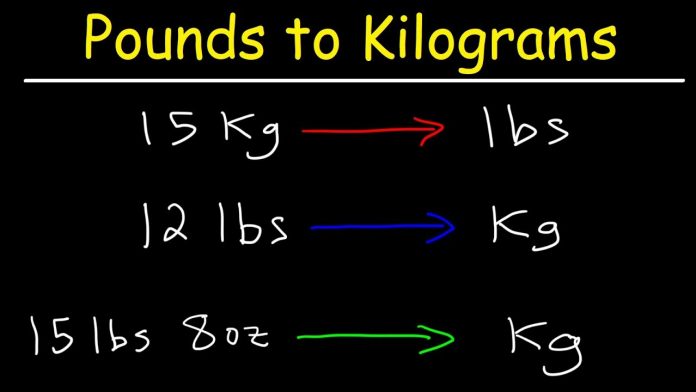How to convert pounds to kilograms
There is a lot of confusion between pounds and kilograms, so it’s important to know the difference. Pound is the weight of a pound of pure water at 32 degrees Fahrenheit. Kilogram is the weight of a kilogram of pure water at 32 degrees Fahrenheit. 1 pound is equal to 0.453577 kilograms.
What Is the Difference Between Pounds & Kilograms?
There is a big difference between pounds and kilograms, so it’s important to know which unit you’re using when describing weight. Pounds are the traditional unit of weight in the United States, while kilograms are the traditional unit of weight in most of Europe. Here’s a quick overview of what each unit represents:
Pounds: 1 pound is equal to 0.45359237 kg
Kilograms: 1 kilogram is equal to 2.2 pounds
What are the different types of weight loss diets?
There are many different types of weight loss diets out there, but what is the difference between pounds and kilograms? Pounds are based on how much a weight is weighed in, while kilograms are based on how much a weight is measured. For example, if someone weighs 180 pounds and their height is 6’2″, their weight would be listed as 180 kg.
What are the benefits of a weight loss diet?
There can be a lot of confusion between pounds and kilograms when it comes to weight loss. Pounds are simply the weight of an object, in this case your body, in ounces. Kilograms are the weight of an object, in this case your body, in grams. Here are some key points to remember about pounds and kilograms:
1 pound is equal to 0.4536 kilograms
1 kilogram is equal to 2.2 pounds
So, for example, if you weigh 160 pounds and want to lose 1 pound, you would need to reduce your weight by 0.4536 kilograms or eat 4500 fewer calories per day. If you weigh 168 pounds and want to lose 1 kilogram, you would need to reduce your weight by 8.34 pounds or eat 18000 fewer calories per day. Keep these important conversions in mind when planning your diet!
The ketogenic diet – what is it and why is it popular?
The ketogenic diet is a low-carbohydrate, high-fat diet that has been shown to be effective for weight loss. It is based on the principle that when the body is in ketosis, it uses fat instead of carbs for energy. This can help you lose weight by reducing your overall calorie intake.
The ketogenic diet was first developed in the 1920s as a treatment for epilepsy. It has since been used to treat other conditions, such as obesity and type 2 diabetes, and has been shown to be an effective way to lose weight.
There are a few things to keep in mind when following the keto diet:
• Make sure you are getting enough protein and fiber on the keto diet. These nutrients help keep you feeling full and minimize carb cravings.
• Stick to moderate amounts of fluids during the initial phase of the keto diet. This will help eliminate any buildup of fluid retention and improve kidney function.
• Avoid processed foods and sugary drinks while on the keto diet. These items can contain high amounts of carbohydrates that will spike your blood sugar levels and cause unwanted side effects like weight gain or heart disease.
What foods can you eat on a ketogenic diet?
On a ketogenic diet, you are allowed to eat foods that contain no more than 20 grams of net carbs per day. This includes vegetables, fruits, whole grains, legumes, dairy products and fish. When preparing your meals, be sure to keep these carbohydrates in mind.
Some keto-approved foods include:
Salads
Vegetables
Fruits
whole grain breads
legumes
dairy products
seafood such as salmon and tuna
nuts and seeds
How do you calculate your calorie intake on a ketogenic diet?
Calculating calorie intake on a ketogenic diet can be a little tricky. You need to understand how many calories in a pound and how many calories in a kilogram. A pound is 3,500 Calories, while a kilogram is 1,000 Calories.
To calculate your calorie intake on a ketogenic diet, you need to divide your total daily caloric needs by the number of calories in a pound. This will give you the number of calories per day that you need to consume.
For example, if youtotal daily caloric needs are 2,000 Calories and 1 Pound has 3,500 Calories, then you would need to consume 675 Calories per day from food to maintain your weight on the ketogenic diet.
conclusion
The main difference between pounds and kilograms is that one is a unit of weight and the other is a unit of mass. Pounds are made up of 0.45359237 kg, while kilograms are made up of 2.2046393 kg.
